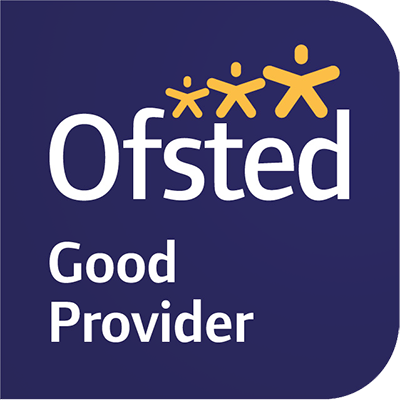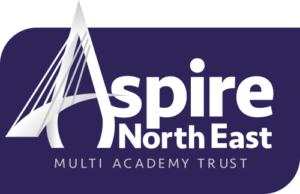PSHCE Curriculum Overview
Click here to download our curriculum overview for PSHCE and Careers.
Click here to view our Careers learning journey.
Click here to view our Personal Development learning journey.
Aim
Here at Southmoor Multi Academy Trust, we aim to securely equip all of our students for life beyond school as successful, confident, responsible and respectful citizens. We believe that education provides the key to social mobility and our curriculum is designed to build strong foundations in the knowledge, understanding and skills which lead to academic and personal success. We want our students to enjoy the challenges that learning offers.
Our aims are underpinned by a culture of high aspirations. Through developing positive relationships, we work towards every individual having a strong belief in their own abilities so that they work hard, build resilience and achieve their very best.
Intent
The curriculum includes formal teaching through subject areas, assemblies and extracurricular activities. We regularly review content to ensure we continue to meet our curriculum aims. The PSHCE and Careers curriculum is planned to enable all students to develop skills in the following areas:
- Relationships, Sex and Health Education
- Living in the Wider World
- Careers and Aspirations
Throughout our programmes of study, every attempt is made to make explicit links to careers and the world of work. In addition to subject-specific links, we aim to explicitly reinforce the skills and aptitudes which support employers say are important in the workplace;
- Aiming high, staying positive and resilience
- Communication skills (listening, speaking, presenting)
- Teamwork and problem solving,
- Creativity and thinking skills
- Self-management and leadership
The British values of democracy, the rule of law, individual liberty, and mutual respect of those with different faiths and beliefs are taught explicitly and reinforced in the way in which the school operates.
Sequence and structure
Our curriculum is split into Key Stage 3 (years 7, 8 and 9) and Key Stage 4 (years 10 and 11) and Key Stage 5 (years 12 and 13) at Southmoor Sixth Form only. All students have one formal lesson of Personal Development on their timetable which is led by a team of teachers. In addition, there are a number of extra opportunities to engage in the subject throughout the year, including presentations from external providers.
Key Stage 3 Curriculum
Our Key Stage 3 PSHCE Curriculum includes the following areas of study:
September to February February to July Year 7 RSHE: Healthy lifestyle LWW: Managing Money & Money Matters CA: Self-Awareness & Skill Attributes RSHE: All about people LWW: British Values & Modern Britain CA: Introduction to Higher Education Year 8 RSHE: Growing Up LWW: Safety in the Virtual World & Personal Finance CA: The World of Work & Employment RSHE: Exploring Sexuality LWW: Understanding Modern Britain CA: What is Enterprise? Year 9 RSHE: Pressures Facing Young People Today LWW: Finance in the World of Work CA: Developing My Future Pathway RSHE: Staying Healthy LWW: Rights & Responsibilities CA: Exploring Higher Education RSHE: Relationships and Sex Education & Health
LWW: Living in the Wider World
CA: Careers & Aspirations
We know that students who read well achieve well. As such all staff are committed to providing regular opportunities to read extensively.
Key Stage 4 Curriculum
Our Key Stage 4 Curriculum
KS4 Half Term 1 Half Term 2 Half Term 3 Half Term 4 Half Term 5 Half Term 6 Year 10 LWW: Online Security and Fraud CA: Preparing for the Workplace RSHE: Mental Health LWW: Risk & Reward CA: Making an Application RSHE: Managing Change Year 11 Post-16 Progression Routes Applying to post-16 education or training
Employment Skills
Lifelong learning
Learning and revision skills to maximise potential Promoting self-esteem and copying with stress
RSHE: Relationships and Sex Education & Health
LWW: Living in the Wider World
CA: Careers & Aspirations
How does our Curriculum cater for students with SEND?
Southmoor and Sandhill View Academies are inclusive academies where every child is valued and respected. We are committed to the inclusion, progress and independence of all of our students, including those with SEN. We work to support our students to make progress in their learning, their emotional and social development and their independence. We actively work to support the learning and needs of all members of our community.
A child or young person has SEN if they have a learning difficulty or disability which calls for special educational provision to be made that is additional to or different from that made generally for other children or young people of the same age. (CoP 2015, p16)
Teachers are responsible for the progress of ALL students in their class and high-quality teaching is carefully planned; this is the first step in supporting students who may have SEND. All students are challenged to do their very best and all students at the Academy are expected to make at least good progress.
Specific approaches which are used within the curriculum areas include:
- Seating to allow inclusion
- Differentiation activities and objectives to stretch and support in all lessons
- Resources are accessible
- Where appropriate support from additional adults is planned to scaffold students learning
- Group work and discussion
- Clear teacher/student communication
- Feedback that allows students to make progress, whether written or verbal
How does our curriculum cater for disadvantaged students and those from minority groups?
As a Trust serving areas with high levels of deprivation, we work tirelessly to raise the attainment for all students and to close any gaps that exist due to social contexts. The deliberate allocation of funding and resources has ensured that attainment gaps are closing in our drive to ensure that all pupils are equally successful when they leave the Academy. More specifically within the teaching of Preparing for Life, we:
- work to identify barriers, interests and what might help each pupil make the next steps in learning.
- provide targeted support for under-performing pupils during lesson time, in addition to revision lessons and intervention outside school hours.
- use strategies best suited to addressing individual needs
- Ensure there are opportunities for students to make use of resources and gain support outside of lesson time
- Provide students with revision materials to reduce financial burden on families
How do we make sure that our curriculum is implemented effectively?
The Director of CEIAG and PSHCE across the Trust is responsible for designing the PSHCE curriculum and monitoring implementation.
The Director’s monitoring is validated by senior leaders.
Staff have regular access to professional development/training to ensure that curriculum requirements are met.
Effective assessment informs staff about areas in which interventions are required. These interventions are delivered during curriculum time to enhance pupils’ capacity to access the full curriculum.
Curriculum resources are selected carefully and reviewed regularly.
The PSHCE curriculum contributes to whole school events and activities to promote the transferable skills developed through learning and their application to the work of work.
How do we make sure our curriculum is having the desired impact?
- Lesson observations
- Learning walks
- Work scrutiny
- Regular feedback from Teaching Staff during department meetings
- Regular feedback from Middle Leaders during curriculum meetings
- Pupil Surveys
- Parental feedback
- Evaluation of staff CPD and student events





